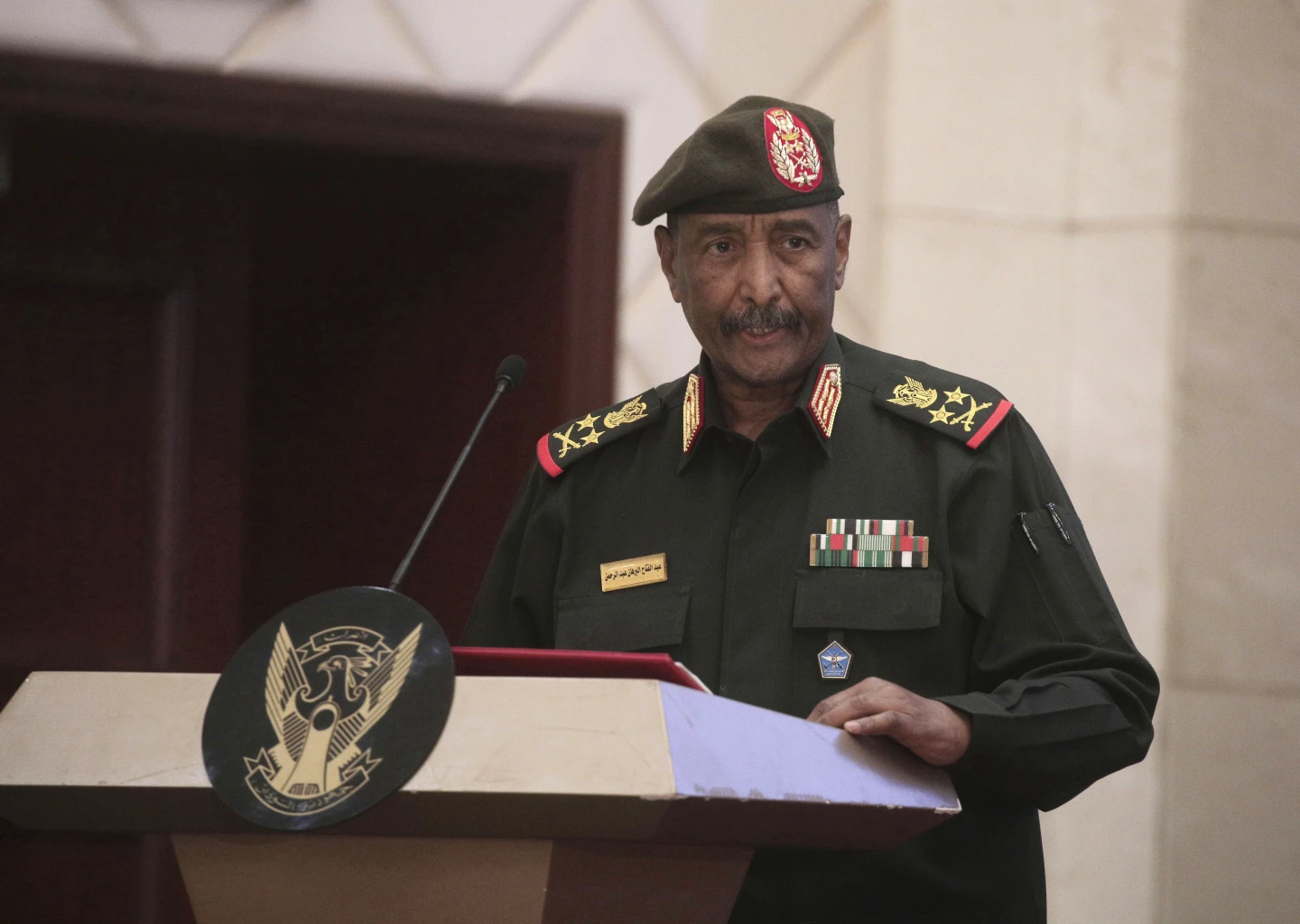Sudan’s top military general held talks in Juba Monday with South Sudan’s president on his second trip abroad since the war in his country started earlier this year.
Gen. Abdel-Fattah Burhan, chairman of the ruling Sovereign Council, arrived in the South Sudanese capital, Juba, Monday morning and was received by President Salva Kiir. Both leaders inspected an honor guard and then headed for talks that focused on regional efforts to find a settlement to the conflict in Sudan, according to the Sovereign Council.
In April, simmering tensions between the military, led by Burhan, and the powerful paramilitary Rapid Support Forces, commanded by Mohammed Hamdan Dagalo, exploded into open fighting in the capital and elsewhere.
The fighting has reduced Sudan’s capital, Khartoum, to an urban battlefield, with neither side managing to gain control of the city. The military headquarters, where Burhan has purportedly been stationed since the conflict began, has been one of the epicenters of the conflict.
In the western Darfur region — the scene of a genocidal campaign in the early 2000s — the conflict has morphed into ethnic violence, with the RSF and allied Arab militias attacking ethnic African groups, according to rights groups and the United Nations.
Meanwhile, in his trip to Juba, Burhan was accompanied by acting Foreign Minister Ali al-Sadiq and Gen. Ahmed Ibrahim Mufadel, head of the General Intelligence Authority, and other military officers, according to the Sovereign Council.
South Sudan’s Minister of Cabinet Affairs Martin Elia Lomuro said that the South Sudanese president has a solution “to resolve the conflict” in Sudan, according to a statement by the South Sudanese presidency.
“It is known that President Kiir is the only person who has intimacy and knowledge about Sudan and can find a solution to the Sudanese crisis,” Lomuro said.
Al-Sadiq, the Sudanese acting foreign minister, meanwhile, was quoted as saying that South Sudan is the best candidate to meditate the ongoing conflict “because we have been one country for so long and we know each other, we know the problems and we know our needs.”
South Sudan gained independence from Sudan in 2011 after a long conflict.
Early in the ongoing war in Sudan, South Sudan’s Kiir attempted to mediate between the warring generals, as part of an initiative by the Intergovernmental Authority on Development, an eight-member regional bloc that includes Sudan.
The Sudanese leader met with President Abdel Fattah el-Sissi of Egypt last week in the Egyptian coastal city of el-Alamein. It was his first trip abroad since the war.
The conflict is estimated to have killed at least 4,000 people, according to the U.N. human rights office, though activists and doctors on the ground say the toll is likely far higher.
More than 4.8 million people have been displaced, according to the U.N. migration agency. Those include over 3.8 million who fled to safer areas inside Sudan and more than 1 million others who crossed into neighboring countries.
On Monday, the United Nations and 64 other humanitarian agencies appealed for $1 billion to help over 1.8 million people expected to flee the war to five neighboring countries by the end of 2023. Those neighboring countries include Egypt, Chad, Central African Republic, Ethiopia and South Sudan.
The UNHCR said the funds are a two-fold increase of what was initially estimated in May, as displacement and needs continue to soar.
“The crisis has triggered an urgent demand for humanitarian assistance,” said Mamadou Dian Balde, a regional director at the UNHCR. “It is deeply distressing to receive reports of children dying from diseases that are entirely preventable, should partners have had sufficient resources.”

